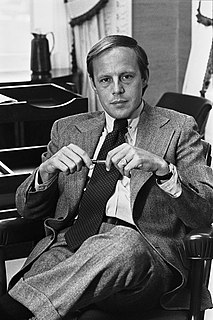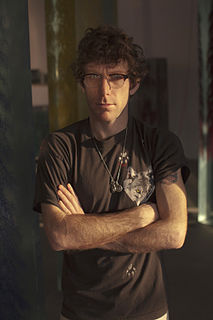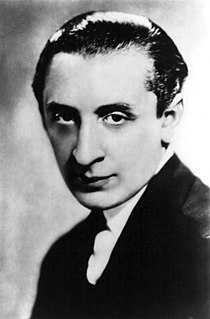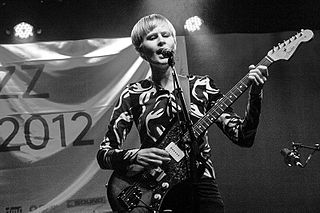A Quote by David Grann
Early in my career I was much more confident in the almost omniscient powers of a reporter, because you could find anything out and then write the definitive piece about it. And as I got older, I got much more humble about trying to learn everything, with what eludes you, especially with history.
Related Quotes
I think sometimes there are films where I understand what they are about, but there are also some mysterious areas in the film where I haven't got the whole image and I haven't got everything. And then it stays much longer with me, because I have to somehow put myself much more into the film to get it. And so this is what I'm trying to do with my films.
I got interested in the Vikings, and then you realize that there isn't much to be read about them because they did not write their history. It was written by hostile witnesses, by Christian monks and so on. From what I could see and understand, I was really excited about it. I loved their culture and loved their gods.
Trump hasn't really done anything yet to abuse his powers. I don't even know if he knows what all his powers are as president. And that worries me. He will learn. After he learns how the presidency works, he could become much more dangerous, because his personality doesn't change. Once presidents find their powers, they don't give them up. They use them.
I had a lot of great lakes of ignorance that I was up against, I would write what I knew in almost like islands that were rising up out of the oceans. Then I would take time off and read, sometimes for months, then I would write more of what I knew, and saw what I could see, as much as the story as I could see. And then at a certain point I had to write out what I thought was the plot because it was so hard to keep it all together in my head. And then I started to write in a more linear way.
I used to think that when I got older, the world would make so much more sense. But you know what? The older I get, the more confusing it is to me. The more complicated it is. Harder. You’d think we’d be getting better at it. But there’s just more and more chaos. The pieces—they’re everywhere. And nobody knows what to do about it. I find myself grasping, Nick. You know that feeling? That feeling when you just want the right thing to fall into the right place, not only because it’s right, but because it will mean that such a thing is still possible? I want to believe in that.
...More important than the deficit, more important then healthcare-more important than anything-we have got to do something about our energy strategy. Because if we permit the climate to continue to warm at an unsustainable rate, and if we keep on doing what we're doing until we're out of oil and we haven't made the transition, then it's inconceivable to me that our children and grandchildren will be able to maintain the American way of life and that the world won't be much fuller of resource-based wars of all kinds.
As far as change, anyone from the age of 13 to 19, you become a whole new person because you grow up. There was so much that I didn't know or that I thought I knew because I was just a 13-year-old at the time who thought I knew everything. But I realized very quickly that, no, there's so much about everything that I don't. So what I've at least tried to do is accept that I don't know everything. Life is so much more fun that way. And it's easier. I've just been trying to learn, rather than to pretend that I'm perfect.
Early on, I settled on the first-person strategy as a way to deal with exposition and world-description issues. As long as the book is, it could have been far longer had I gone with an omniscient third-person narrator, or multiple point-of-view characters, since either of those would have enabled me to impart much more detailed information about the history and geography of the world.

































